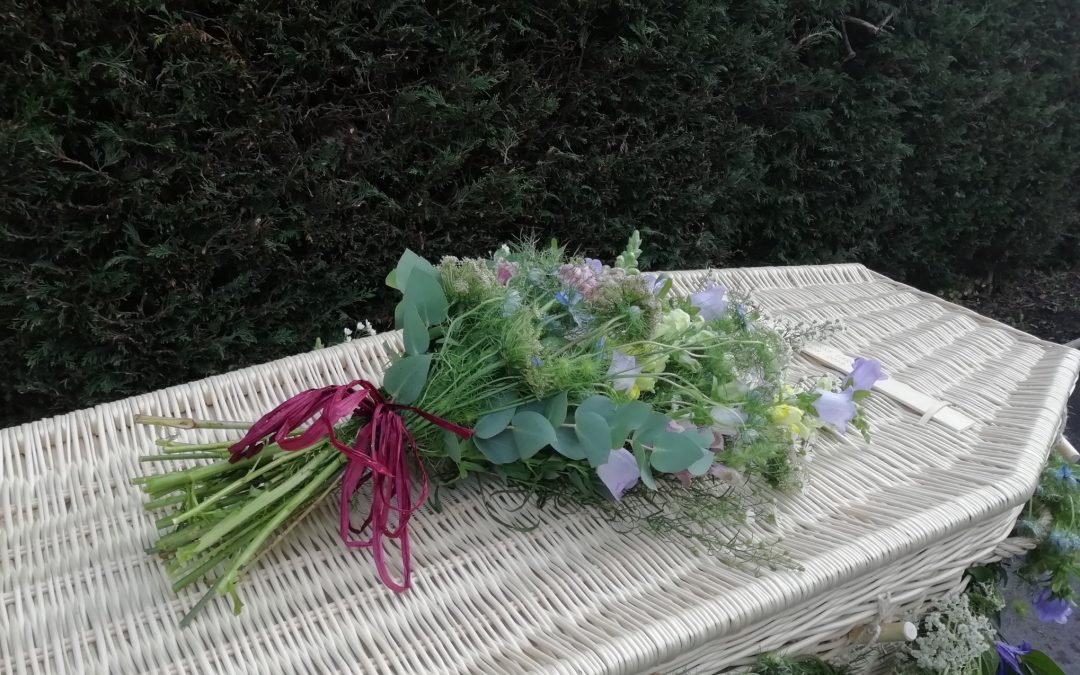Written by David Billington, Independent Funeral Director, Full Circle Funerals.
More and more people are wanting to understand how they can consider the environment in the choices they make, and this includes choices around environmentally conscious funerals. Greener funerals can include a number of greener options and/or they can be arranged in such a way as to minimise the impact on the environment as much as possible.
Considering a greener funeral?
If you are considering an environmentally conscious funeral, this may be because you want to reflect the beliefs, values and individuality of the person who has died. Perhaps the environment was important to them. Choosing green options can be a lovely way to pay tribute to the things that they were passionate about in life.
Even if you make only a few simple changes, lots of small things by many people can add up to a significant contribution.
The most important thing is to do your research. Some funeral choices are regarded as being better for the environment than others but there also remain many questions still unanswered. A good example of this is the carbon footprint of individual coffins, where it is important to consider not only the material used but also the distance it has travelled through the supply chain.
Funeral choices that respect the environment
If you would like an environmentally conscious funeral, consider setting out your wishes before you die, either verbally or in writing. Although these wishes are not legally binding, in most circumstances they are likely to be followed and those arranging your greener funeral will be pleased to have some guidance. It will be helpful to them to know they are carrying out your wishes.
Burial avoids the mercury, dioxin and carbon monoxide emissions associated with cremation and is therefore considered to be a greener choice. Other alternatives are starting to be made available in some countries, such as water cremation or “Resomation”. Although the UK manufactures many resomators, they are not yet approved for use in this country. Human composting is now an option in Washington State and may be available here at some point in the future.
Coffins made from cardboard, willow or bamboo are often considered greener but it is important to look into where the materials have travelled from to evaluate their real carbon footprint. More locally grown and manufactured options may be greener. Look for manufacturers of wood coffins that are Forest Stewardship Council (FSC) registered. A shroud is another option, although it is not something everyone is willing to consider.
Look for local burial sites and crematoria to reduce travel distance, find a funeral director with an electric or hybrid hearse and encourage sharing of vehicles if there are a lot of mourners travelling by car.
When it comes to flowers, choose British flowers, seasonal blooms and local suppliers. Avoid embalming to ensure that formaldehyde does not leak into the ground after burial.
When you are thinking about how to remember the person who has died, planting a tree or a memorial garden full of pollinating plants are lovely options that keep the environment in mind.
If you would like more information about Green Funerals, then please visit the Full Circle Funerals website.
Rucklidge Law can support you with any legal matters following the death of a loved one. Find out more about our probate services.


Recent Comments